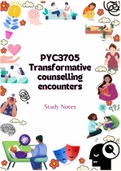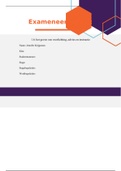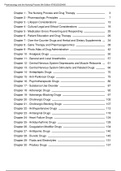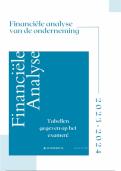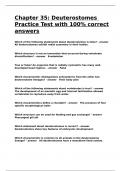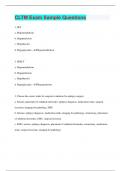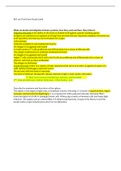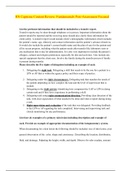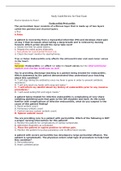Summary
Summary PYC3705 - Transformative counselling encounters - Study Notes
- Institution
- University Of South Africa (Unisa)
Study notes are made in color for better understanding. Short but with all the important info. Very complete. No more reading through the whole book. Use these study notes with the self-assessment questions in your book and past papers to guarantee a good mark. Good luck!
[Show more]
